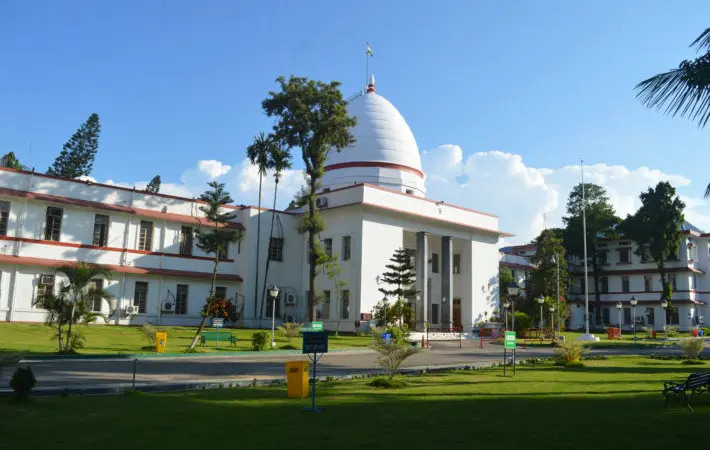
The Supreme Court has directed petitioners to the Gauhati High Court over Assam’s deportation drive
The Supreme Court of India has refused to entertain a plea challenging the Govt of Assam deportation drive, directing petitioners to approach the Gauhati High Court instead. The plea, filed by the All BTC Minority Students Union (ABMSU), alleged that Assam authorities were conducting a sweeping and indiscriminate deportation campaign without proper nationality verification or legal recourse. The apex court’s decision has reignited debates over human rights, constitutional safeguards, and border security policies in India.
Background: Assam Deportation Drive
The Assam government has been actively pursuing the deportation of individuals suspected to be foreigners, particularly those believed to have entered India illegally from Bangladesh. The drive gained momentum following a February 4 Supreme Court order, which directed Assam to initiate deportation proceedings for 63 declared foreign nationals whose nationality had been confirmed.
However, the petitioners argue that the state’s push-back policy has led to wrongful deportations, including cases where Indian citizens were allegedly forced across the border without due process. Reports have surfaced of individuals being detained and deported without Foreigners Tribunal declarations, raising concerns over constitutional violations.
Supreme Court’s Response
During the hearing, a bench of Justices Sanjay Karol and Satish Chandra Sharma questioned why the petitioners had not approached the Gauhati High Court first. Senior advocate Sanjay Hegde, representing ABMSU, cited previous Supreme Court rulings as the basis for the plea. However, the bench maintained that the High Court was the appropriate forum for addressing concerns related to Assam’s deportation policies.
The petitioners subsequently withdrew their plea, opting to seek legal recourse at the Gauhati High Court instead.
Legal and Human Rights Concerns
The deportation drive has raised serious legal and human rights concerns, particularly regarding:
- Due Process Violations – Allegations that individuals are being deported without nationality verification or Foreigners Tribunal rulings.
- Push-Back Policy – Reports suggest Assam authorities are using informal deportation mechanisms, bypassing judicial oversight.
- Impact on Marginalized Communities – Many affected individuals belong to poor and marginalized communities, lacking access to legal aid to contest their deportation.
Legal experts argue that the push-back policy may violate Articles 14 and 21 of the Indian Constitution, which guarantee equality before law and protection of life and personal liberty.
Conclusion – Assam deportation drive
The Supreme Court’s directive to approach the Gauhati High Court underscores the complex legal and humanitarian challenges surrounding Assam’s deportation drive. As the case moves to the High Court, the debate over border security, human rights, and constitutional safeguards is expected to intensify. The outcome of this legal battle could set a precedent for future deportation policies in India.
Also read – Paris Riots Erupt After PSG Victory: 2 Dead, 192 Injured, 426 Arrested in Night of Chaos